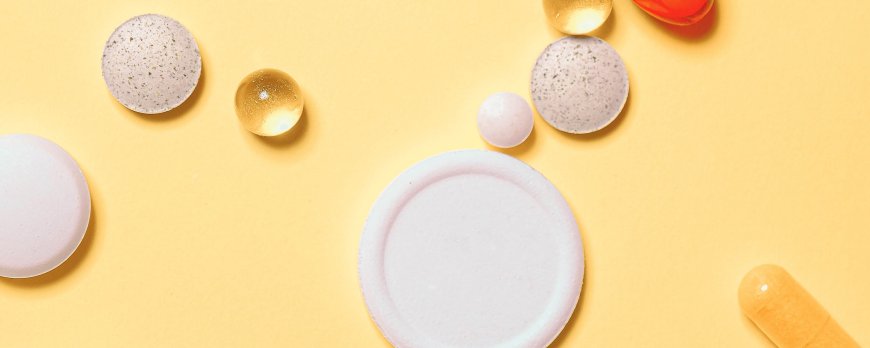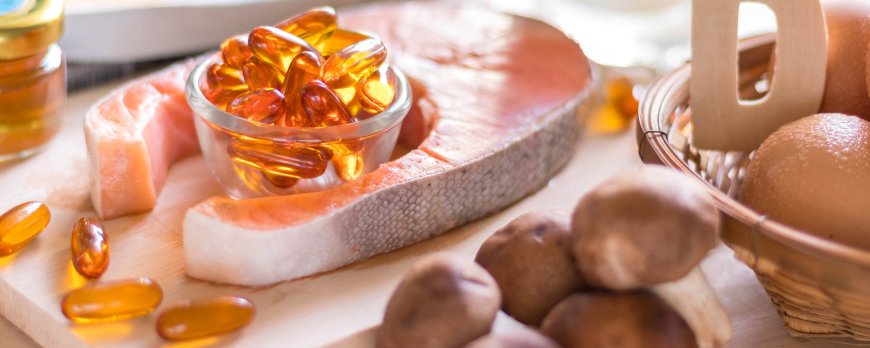Do prebiotics make IBS worse?
Explore the connection between prebiotics and IBS in our article 'Do prebiotics make IBS worse?'. Uncover truths and bust myths about gut health.

Do prebiotics make IBS worse?
Prebiotics have been a topic of interest in relation to IBS, with some suggesting they may have negative effects on the condition. While the impact of prebiotic consumption on individuals with irritable bowel syndrome (IBS) can vary, studies have shown both positive and negative effects. This article will explore the connection between prebiotics and IBS, examining whether prebiotics can worsen symptoms and the factors that contribute to their mixed effects.
Key Takeaways:
- Certain prebiotics, like inulin-type fructans, may worsen symptoms such as flatulence in some individuals with IBS.
- Other types of prebiotics, such as galacto-oligosaccharides, partially hydrolysed guar gum, and pectin, have been found to improve IBS symptoms, particularly reducing flatulence.
- Lower doses of prebiotics (less than 6 grams per day) are generally better tolerated than higher doses.
- It is recommended that individuals with IBS try prebiotics for at least three weeks to see if their symptoms can adapt and tolerate them.
Understanding Prebiotics and IBS
Before delving into whether prebiotics can worsen IBS, it is important to understand what prebiotics are and how they relate to this digestive disorder. Prebiotics are non-digestible food ingredients that stimulate the growth and activity of beneficial bacteria in the gut. They essentially serve as fuel for these beneficial bacteria, helping to promote a healthy balance in the gut microbiota.
In individuals with IBS, the gut microbiota is often imbalanced, leading to symptoms such as abdominal pain, bloating, and changes in bowel habits. Some studies have suggested that specific types of prebiotics, such as inulin-type fructans, may exacerbate these symptoms in certain individuals with IBS. In particular, these prebiotics have been associated with an increase in flatulence, which can be distressing for those already experiencing digestive discomfort.
Types of Prebiotics
While inulin-type fructans may worsen symptoms in some individuals with IBS, it is important to note that not all prebiotics have the same effect. Other types of prebiotics, such as galacto-oligosaccharides, partially hydrolysed guar gum, and pectin, have actually been shown to improve IBS symptoms, particularly reducing flatulence. This suggests that the impact of prebiotics on IBS can vary depending on the specific type.
Additionally, the dosage of prebiotics can also play a role in their effects on IBS. Lower doses of prebiotics (less than 6 grams per day) are generally better tolerated than higher doses. It is recommended that individuals with IBS try prebiotics for at least three weeks to see if their symptoms can adapt and tolerate them.
In conclusion, while certain prebiotics may exacerbate IBS symptoms, particularly flatulence, others have been found to have a positive impact on symptom improvement. Further research is needed to better understand which types of prebiotics are most beneficial for individuals with IBS and to determine the precise mechanisms behind their effects. It is always recommended to consult with a healthcare professional before making any significant changes to your diet or treatment plan.

Types of Prebiotics and their Impact on Individuals with IBS
Not all prebiotics are created equal, and different types of prebiotics may have varying impacts on individuals with irritable bowel syndrome (IBS). While some prebiotics, such as inulin-type fructans, have been found to worsen symptoms like flatulence in certain individuals with IBS, other types of prebiotics have shown promise in improving symptoms, particularly reducing flatulence.
One type of prebiotic that has been studied for its positive effects on IBS is galacto-oligosaccharides. These prebiotics have been found to enhance the growth of beneficial bacteria in the gut, potentially leading to improvements in IBS symptoms. Similarly, partially hydrolysed guar gum and pectin have also shown potential in improving symptoms in individuals with IBS, with studies indicating a reduction in flatulence and overall symptom severity.
Types of Prebiotics:
- Inulin-type fructans
- Galacto-oligosaccharides
- Partially hydrolysed guar gum
- Pectin
It is worth noting that the tolerability of prebiotics in individuals with IBS may vary depending on the dose. Generally, lower doses of prebiotics (less than 6 grams per day) are better tolerated than higher doses. Therefore, individuals with IBS should start with lower doses and gradually increase the amount to determine their tolerance level.
If you have IBS and are considering incorporating prebiotics into your diet, it is recommended to try them for at least three weeks. This allows your body to adapt and potentially tolerate prebiotics, giving you a better chance to assess their impact on your symptoms. As always, it is important to consult with a healthcare professional before making any significant changes to your diet or treatment plan.
Mixed effects of prebiotics on IBS
The relationship between prebiotics and irritable bowel syndrome (IBS) is complex, with some studies suggesting potential negative effects while others show positive outcomes. It is important to note that not all prebiotics have the same impact on IBS symptoms. Certain prebiotics, such as inulin-type fructans, have been found to exacerbate symptoms like flatulence in some individuals with IBS. However, other types of prebiotics like galacto-oligosaccharides, partially hydrolyzed guar gum, and pectin have shown promise in improving symptoms, particularly reducing flatulence.
Studies have indicated that the effects of prebiotics on IBS can vary from person to person, highlighting the individual nature of the condition. What may cause negative effects in one individual may have positive outcomes in another. Therefore, it is crucial to experiment and find the prebiotics that work best for each individual's unique IBS symptoms.
When considering the use of prebiotics for managing IBS symptoms, it is recommended to start with lower doses (less than 6 grams per day) as they are generally better tolerated by individuals. Gradually increasing the dosage and carefully monitoring symptoms can help determine the optimal level of prebiotic intake. It is also advisable to try prebiotics for at least three weeks to allow the body to adapt and adjust to their presence, as different individuals may respond differently to prebiotics.
Ultimately, the effects of prebiotics on IBS symptoms can vary, and it is advised to consult with a healthcare professional or registered dietitian to determine the most suitable approach for managing individual IBS symptoms.

Prebiotics and Flatulence in IBS
One common symptom of irritable bowel syndrome (IBS) is flatulence, and it can be particularly bothersome for those living with the condition. For individuals with IBS, certain prebiotics may exacerbate this symptom, leading to increased gas production and discomfort. However, it's important to note that the effects of prebiotics on flatulence in IBS can vary depending on the type of prebiotic consumed.
Inulin-type fructans: This type of prebiotic, commonly found in foods such as onions, garlic, and wheat, has been associated with increased gas production in individuals with IBS. While inulin-type fructans have been shown to promote the growth of beneficial gut bacteria, they can also ferment in the gut, leading to excess gas and bloating.
Galacto-oligosaccharides (GOS), partially hydrolyzed guar gum, and pectin: On the other hand, some prebiotics like GOS, partially hydrolyzed guar gum, and pectin have been found to improve symptoms of IBS, including reducing flatulence. These prebiotics are less likely to cause fermentation in the gut, resulting in fewer gas-related issues.
Managing Flatulence in IBS
If you have IBS and are considering incorporating prebiotics into your diet, it's important to monitor your symptoms and make adjustments accordingly. Here are some tips to help manage flatulence:
- Start with smaller doses: Begin with lower doses of prebiotics, gradually increasing over time to allow your body to adapt.
- Experiment with different prebiotics: If you find that certain prebiotics exacerbate your flatulence, try switching to those that have shown to be better tolerated, like GOS, partially hydrolyzed guar gum, or pectin.
- Keep a food diary: Keep track of your diet and symptoms to identify any patterns or triggers that may contribute to increased flatulence.
- Consult with a healthcare professional: If you're unsure about incorporating prebiotics into your diet or need personalized advice, consult with a healthcare professional who specializes in digestive health.
Remember, every individual with IBS is unique, and what works for one person may not work for another. It's essential to listen to your body and make adjustments based on your own experience and tolerance when it comes to prebiotics and managing flatulence in IBS.

Prebiotics that may improve IBS symptoms
While certain prebiotics may worsen symptoms in individuals with IBS, others have shown potential for improving overall gut health and reducing symptoms. It is important to note that the effects of prebiotics can vary from person to person, and what works for one individual may not work for another. However, here are some types of prebiotics that have shown promise in improving IBS symptoms:
Galacto-oligosaccharides (GOS)
GOS is a type of prebiotic that has been found to increase the levels of beneficial bacteria in the gut and reduce symptoms of IBS. Studies have shown that GOS can help improve bloating, abdominal pain, and stool consistency in individuals with IBS.
Partially hydrolyzed guar gum (PHGG)
PHGG is another prebiotic that has shown potential in improving IBS symptoms. It is a soluble fiber derived from guar gum and has been found to reduce bloating, flatulence, and abdominal pain in individuals with IBS. PHGG works by promoting the growth of beneficial bacteria in the gut and improving overall gut health.
Pectin
Pectin is a type of prebiotic fiber that is commonly found in fruits like apples and citrus fruits. It has been shown to have beneficial effects on IBS symptoms, particularly reducing bloating and improving stool consistency. Pectin works by acting as a prebiotic, providing nourishment for beneficial bacteria in the gut.
When considering incorporating prebiotics into your diet to improve IBS symptoms, it is essential to start with lower doses, preferably less than 6 grams per day, and gradually increase the dosage if well-tolerated. It is also advisable to consult with a healthcare professional or a registered dietitian for personalized recommendations. Remember, it is important to give prebiotics at least three weeks to see if your symptoms adapt and improve with their inclusion in your diet.

Finding the Right Dosage of Prebiotics
The dosage of prebiotics plays a significant role in their impact on IBS symptoms, with higher doses often resulting in a greater likelihood of negative effects. It is important for individuals with IBS to find the right dosage that works best for them, taking into consideration their unique needs and tolerances.
Here are some key points to keep in mind when determining the appropriate dosage of prebiotics:
- Start with a low dose: To minimize the risk of negative effects, it is recommended to begin with a low dose of prebiotics, typically less than 6 grams per day. This allows the body to gradually adapt to the presence of prebiotics and reduces the likelihood of experiencing discomfort.
- Monitor symptoms: Keep track of any changes in IBS symptoms when incorporating prebiotics into your diet. If you notice any worsening or new symptoms, it may be an indication that the dosage is too high for your individual tolerance.
- Consult with a healthcare professional: If you are unsure about the appropriate dosage of prebiotics for your specific condition, it is advisable to consult with a healthcare professional. They can provide personalized guidance and help you determine the most suitable dosage based on your individual needs.
Summary
Finding the right dosage of prebiotics is crucial for individuals with IBS. While higher doses of prebiotics may increase the likelihood of negative effects, starting with a low dose and gradually increasing it as tolerated can help minimize discomfort and optimize symptom management. Monitoring symptoms closely and seeking advice from a healthcare professional can provide valuable guidance in finding the ideal dosage for your unique needs.
Adapting to Prebiotics with IBS
While prebiotics may have initial negative effects on individuals with IBS, it is possible for the body to adapt to their presence over time. It is important to approach the introduction of prebiotics into your diet with caution and give your body time to adjust. Here are some tips to help you adapt to prebiotics while managing your IBS symptoms:
- Start with low doses: Begin by incorporating small amounts of prebiotics into your diet, gradually increasing the dosage over time. This approach allows your body to adapt and minimizes the likelihood of experiencing severe negative effects.
- Monitor your symptoms: Keep a symptom diary to track how your body reacts to prebiotics. Note any changes in your IBS symptoms, including frequency and severity. This information can help you identify specific prebiotics or dosage levels that may be better tolerated.
- Experiment with different types of prebiotics: While some prebiotics may worsen IBS symptoms, others may actually improve them. Consider trying different types of prebiotics, such as galacto-oligosaccharides, partially hydrolyzed guar gum, or pectin, which have shown potential benefits for individuals with IBS.
Consult with a healthcare professional:
If you are unsure about incorporating prebiotics into your diet or have concerns about their potential effects on your IBS symptoms, it is recommended to consult with a healthcare professional. They can provide personalized guidance based on your individual needs and help you make informed decisions about managing your IBS.
Remember, every individual with IBS may react differently to prebiotics, and finding the right approach may take time. By starting with low doses, monitoring your symptoms, and seeking professional advice, you can increase your chances of successfully adapting to prebiotics and potentially experience improvements in your IBS symptoms.
Conclusion
The impact of prebiotics on individuals with IBS can vary, with some experiencing worsening symptoms while others may find relief and improvement through prebiotic consumption. It is important to note that certain types of prebiotics, such as inulin-type fructans, have been associated with negative effects on IBS symptoms, including increased flatulence. However, other types of prebiotics, such as galacto-oligosaccharides, partially hydrolyzed guar gum, and pectin, have shown potential in improving symptoms, particularly reducing flatulence.
It is also crucial to consider the dosage of prebiotics when incorporating them into an IBS management plan. Lower doses, typically less than 6 grams per day, are generally better tolerated than higher doses. Gradual introduction of prebiotics, along with careful monitoring of symptoms, can help individuals adapt to prebiotic consumption and potentially minimize negative effects.
Individuals with IBS who are considering incorporating prebiotics into their diet should consult with a healthcare professional to determine the most suitable types and dosages for their specific needs. It is recommended that prebiotics be tried for at least three weeks to assess their impact on symptoms and to allow for any necessary adjustments.
In conclusion, while prebiotics can have mixed effects on individuals with IBS, it is worth exploring their potential benefits under guidance from a healthcare professional. By carefully selecting and monitoring the types and dosages of prebiotics consumed, individuals with IBS may find relief and improvement in their symptoms.
FAQ
Do prebiotics make IBS worse?
Prebiotics can have mixed effects on individuals with irritable bowel syndrome (IBS). While certain prebiotics, such as inulin-type fructans, may worsen symptoms like flatulence in some individuals with IBS, other types of prebiotics like galacto-oligosaccharides, partially hydrolysed guar gum, and pectin have been shown to improve symptoms, particularly reducing flatulence.
What types of prebiotics should I be aware of?
There are different types of prebiotics, including inulin-type fructans, galacto-oligosaccharides, partially hydrolysed guar gum, and pectin. Each type can have different effects on IBS symptoms, with some potentially exacerbating symptoms while others may improve them.
Are there any negative effects of prebiotics on IBS?
Prebiotics can have both positive and negative effects on individuals with IBS. While certain prebiotics may worsen symptoms like flatulence in some individuals, others have been shown to improve symptoms such as reducing flatulence. It is important to understand the individual response to prebiotics and adjust accordingly.
Can prebiotics worsen flatulence in individuals with IBS?
Certain prebiotics, such as inulin-type fructans, have been associated with increased flatulence in individuals with IBS. However, other types of prebiotics like galacto-oligosaccharides, partially hydrolysed guar gum, and pectin have been shown to reduce flatulence in IBS patients.
Are there prebiotics that may improve IBS symptoms?
Yes, certain types of prebiotics have been found to improve IBS symptoms. Prebiotics such as galacto-oligosaccharides, partially hydrolysed guar gum, and pectin have shown promise in reducing symptoms like flatulence in individuals with IBS.
What is the recommended dosage of prebiotics for individuals with IBS?
It is generally recommended to start with lower doses of prebiotics, usually less than 6 grams per day, as higher doses may be less tolerated. It is important to find the right dosage that works for each individual and monitor symptoms accordingly.
How can I adapt to prebiotics with IBS?
To adapt to prebiotics with IBS, it is recommended to gradually introduce prebiotics into your diet and monitor symptoms. Start with lower doses and increase gradually to find the right balance that works for you.


































































































































